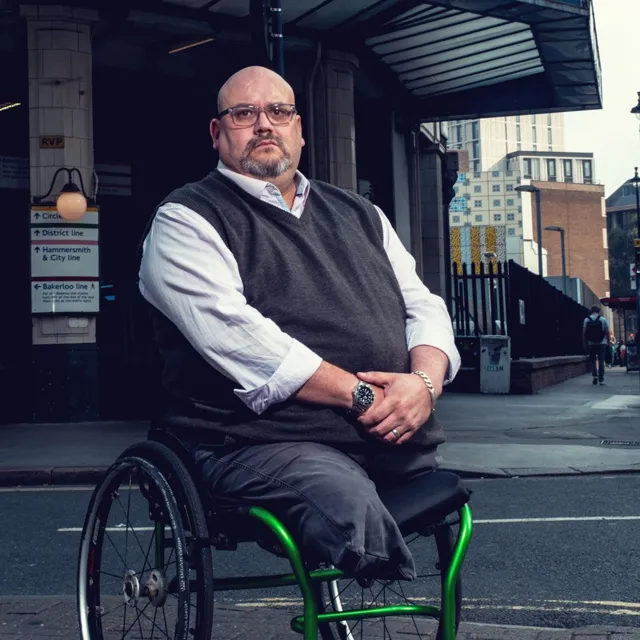20 Years On: A Survivor’s Unflinching Account of the London Bombings and the Path to Healing
Two decades have passed since the devastating 7 July 2005 London bombings, yet for Dan Biddle, the image of the lead suicide bomber, Mohammad Sidique Khan, remains etched in his memory with haunting clarity. The visceral experience of looking into the bomber’s eyes just moments before the explosion has left an indelible mark, triggering complex post-traumatic stress disorder (PTSD) that continues to surface in everyday life. Dan describes these intrusive thoughts as if the bomber is perpetually present, a constant, agonizing reminder of the event that irrevocably altered his life.
Dan was a passenger on a rush-hour London Underground Circle line train when Khan detonated a homemade bomb in his rucksack. The explosion, caused by an al-Qaeda-devised chemical recipe, tragically killed six people, including David Foulkes, 22, Jennifer Nicholson, 24, Laura Webb, 29, Jonathan Downey, 34, and the two oldest victims, Colin Morley and Michael Brewster, both 52. In total, 52 lives were lost that day, with 770 others injured in the coordinated attacks by Islamist extremists. Dan’s survival, given his proximity to the blast, is a testament to sheer chance, but his physical and psychological wounds were profound.
The immediate aftermath of the explosion was a scene of chaos and devastation. Dan was thrown from the train, striking a tunnel wall before landing in the narrow space between the wall and the track. His injuries were catastrophic: his left leg was amputated, his right leg was severed below the knee, and he sustained severe burns to his arms, hands, and face. He lost his left eye and hearing on that side, along with suffering a significant laceration to his forehead. Internal injuries included punctures and ruptures to his kidneys, lungs, colon, and bowel, leading to the eventual loss of his spleen. Dan’s consciousness throughout this ordeal, coupled with the scale of his injuries, made him the most severely injured survivor of the attacks.
Initially mistaking the explosion for an electrical fault, Dan soon realized the horrifying reality as debris ignited his clothing. The deafening silence that followed the blast was quickly replaced by the desperate screams of the injured. Despite the overwhelming pain and disbelief, a primal instinct to survive took hold. Fearing his father would have to identify his body, Dan found the will to cry out for help. His life was saved by fellow passenger Adrian Heili, a combat medic, who applied a tourniquet and stemmed the bleeding from a severed artery in Dan’s thigh. This critical intervention, along with the subsequent, exceptional care provided by the NHS, including 87 units of blood and multiple life-saving procedures, allowed Dan to survive.
While Dan physically recovered over an arduous eight-week period in an induced coma and a year of hospitalization, the psychological battle was just beginning. The persistent flashbacks and intrusive thoughts of the bomber tormented him, leading to survivor’s guilt and a profound sense of despair. By 2013, this mental anguish had driven him to attempt suicide on three separate occasions. However, the emergence of his relationship with Gem proved to be a turning point. The thought of inflicting such trauma on her, by ending his own life, ultimately halted his darkest impulses.
With Gem’s support, Dan sought professional help, attending a mental health assessment that initiated a path toward managing his PTSD. A significant step in his therapeutic journey was returning to Edgware Road station in 2014. The experience was fraught with anxiety, flashbacks, and the overwhelming sounds of the attack. Yet, with the station manager’s understanding and Gem’s unwavering presence, Dan managed to board a train, even stopping at the precise location in the tunnel where his life had nearly ended. This symbolic act, though intensely difficult, marked a crucial moment of confronting his trauma.
The experience of the train stopping at that exact point was profoundly affecting, a stark reminder of where his life had irrevocably changed. Yet, as the train moved on, Dan felt a burgeoning sense of determination to move forward. He resolved to marry Gem, which he did the following year, and to build a life of purpose. Today, Dan runs a company dedicated to helping disabled individuals find employment, a career path he might never have pursued without the transformative, albeit brutal, experience of 7/7. While the flashbacks and difficult days persist, Dan actively manages his condition and shares his story in a published book, driven by a powerful resolve to honor the memory of those who did not survive.
He concludes with a powerful message of resilience: “I’m very lucky to still be alive. I’ve paid an immense, enormous price. I’ll just keep fighting every day to make sure that him and his actions never win.” For those seeking support with similar issues, the BBC Action Line offers a comprehensive list of resources.

